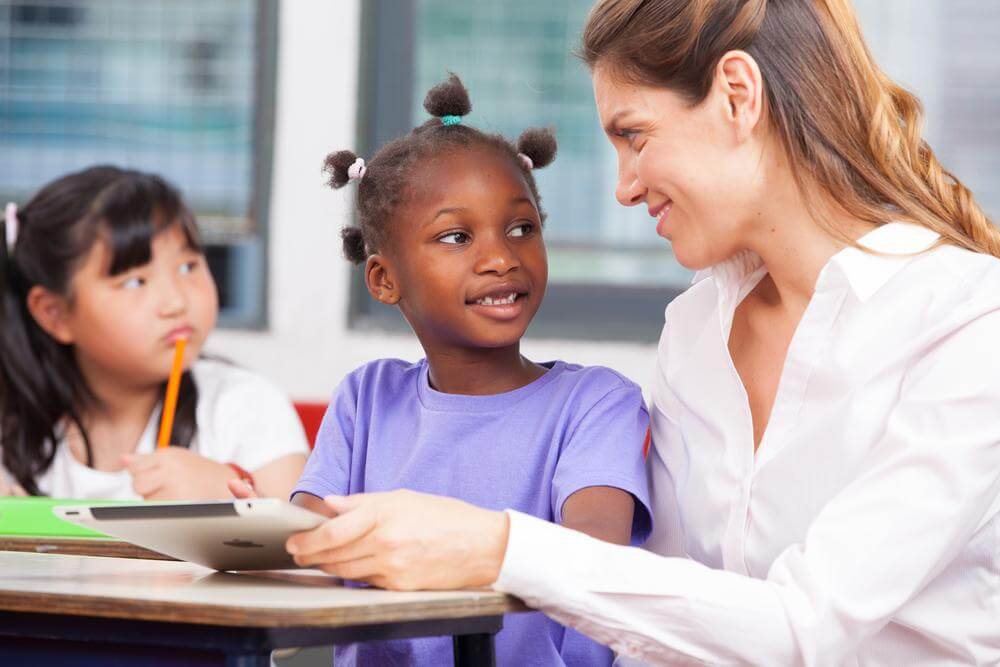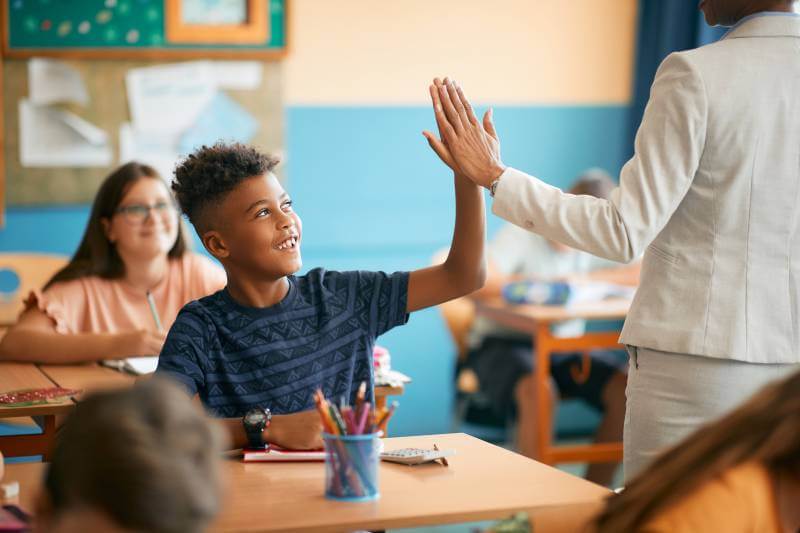
What Are the Responsibilities of a Teacher? (2026 Guide)
In the realm of education, teachers play a pivotal role in shaping the minds and futures of countless individuals. They are not only purveyors of knowledge but also mentors, motivators, and role models. The responsibilities of teacher extend far beyond the confines of the classroom, encompassing a wide range of duties that contribute to the holistic development of their students. In this article, VTJ will delve into the essential tasks and obligations that teachers undertake to create a meaningful and impactful educational experience for their students.
Overview Of The Responsibilities Of Teacher

Planning And Preparing Lessons
One of the primary responsibilities of teacher is to meticulously plan and prepare lessons that align with the curriculum and cater to the diverse needs of their students. This involves designing engaging and interactive activities, selecting appropriate teaching materials, and creating a structured framework for effective learning. By carefully crafting lesson plans, teachers ensure that their students receive a well-rounded education that fosters critical thinking, problem-solving skills, and a thirst for knowledge.
Imparting Knowledge
Teachers serve as the conduits of knowledge, imparting subject-specific information and skills to their students. They employ various instructional strategies and techniques to deliver lessons effectively, catering to different learning styles and abilities. Through engaging lectures, discussions, demonstrations, and hands-on activities, teachers strive to instill a deep understanding of the subject matter and encourage intellectual curiosity. They also provide guidance and support to help students overcome challenges and achieve their academic goals.
Providing Resources
In addition to delivering lessons, responsibilities of teacher provide students with the necessary resources to enhance their learning experience. This includes recommending textbooks, supplementary materials, and online resources that supplement the curriculum. Teachers also create a supportive classroom environment by establishing a well-stocked library, incorporating technology into lessons, and encouraging students to explore additional resources independently.
Explore More: 14 Types of teaching methods for an effective lesson
Researching And Developing New Teaching Materials
Teachers are constantly engaged in the process of researching and developing new teaching materials to enhance their instructional practices. They stay updated with the latest educational trends, methodologies, and technological advancements to ensure that their teaching approaches remain relevant and effective. By exploring innovative resources, incorporating multimedia elements, and adapting materials to suit the needs of their students, teachers create a dynamic and engaging learning environment.
Understanding The Curriculum
A fundamental responsibilities of teacher are to have a deep understanding of the curriculum they are teaching. They familiarize themselves with the learning objectives, standards, and expectations set by educational authorities. By comprehending the curriculum, teachers can effectively plan and deliver lessons that align with the prescribed content and learning outcomes. They ensure that their teaching strategies and assessments are in line with the curriculum, providing students with a comprehensive and cohesive educational experience.
Making Learning An Engaging Experience
Teachers strive to make learning an engaging and interactive experience for their students. They employ a variety of instructional techniques, such as group work, hands-on activities, multimedia presentations, and educational games, to capture students’ interest and foster active participation. By creating a stimulating and inclusive classroom environment, teachers encourage students to take ownership of their learning, ask questions, and explore concepts beyond the confines of textbooks.
Discover Related Guides: Exploring the 7 Roles of a Teacher: A Comprehensive Guide
Encouraging Students
Teachers play a vital role in motivating and encouraging their students. They provide constructive feedback, praise achievements, and offer support during challenging times. They recognize and celebrate individual strengths and achievements, fostering a sense of belonging and self-worth among their students. Through their encouragement, teachers inspire students to believe in themselves and pursue their dreams.
Researching And Implementing New Teaching Methods
Teachers are committed to staying abreast of the latest educational research and advancements in teaching methodologies. It is their responsibility to continuously seek out new strategies and approaches to enhance their instructional practices and meet the evolving needs of their students.
Acting As A Role Model
Teachers serve as role models for their students, both inside and outside the classroom. They need demonstrate positive values and behaviors to inspire their students to emulate these traits and develop into responsible, compassionate individuals.
Setting Performance Goals And Tracking Improvements
Responsibilities of teacher in the classroom is setting performance goals for their students and tracking their progress. They assess students’ strengths and weaknesses, identify areas for improvement, and develop individualized learning plans. Teachers must set clear expectations and provide constructive feedback, teachers help students understand their academic goals and work towards achieving them. They monitor students’ progress, adjust instructional strategies as needed, and provide additional support or challenges to ensure continuous growth and improvement.
Organizing School Events
Besides the academic aspect, teachers often take on the responsibility of organizing and coordinating various school events and activities. Through these events, teachers create opportunities for students to showcase their talents, engage with the community, and develop important social and interpersonal skills. These events also foster a sense of belonging and school spirit among students, parents, and staff, creating a supportive educational environment.
Performing Administrative Tasks
Performing administrative tasks is an integral part of a teacher’s role in ensuring the smooth operation of an educational institution. Teachers must possess strong organizational skills to manage various administrative responsibilities of teacher effectively including maintaining accurate records, managing schedules, and coordinating with other staff members. Teachers need to focus on detail to ensure accuracy in record-keeping, documentation, and data entry to avoid errors and discrepancies. Proficiency in using technology tools and software can significantly streamline administrative tasks, so teachers should be familiar with relevant software applications.
Communicating Effectively With Other Teachers And Educational Organisations
Effective communication with other teachers and educational organizations is crucial for professional growth and collaboration. Active listening is an essential skill that teachers should possess when communicating with colleagues. Building professional networks with other teachers and educational organizations can provide valuable opportunities for collaboration, resource sharing, and professional development.
Continue Learning: What Is An Assessment Tool? 11 BEST Assessment Tools for Teachers
What Are The Skills Of A Teacher?

Critical Thinking Skills
Teachers with strong critical thinking skills possess the ability to analyze information, evaluate perspectives, and make informed decisions. They excel at breaking down complex concepts into manageable parts, allowing them to effectively teach and guide their students. These teachers can critically assess the validity and reliability of information, helping students develop their own analytical skills. They encourage students to think independently, ask probing questions, and consider multiple viewpoints. By fostering critical thinking skills, teachers help students to become active, evaluate, and solve problems in various contexts.
Patience
Patience is an essential skill for teachers as they work with diverse groups of students with varying abilities and learning styles. Patient teachers understand that each student learns at their own pace and may face challenges along the way. They remain calm and composed, providing support and guidance to help students overcome obstacles. Patient teachers take the time to explain concepts thoroughly, ensuring that every student understands the material. They create a safe and non-judgmental environment where students feel comfortable asking questions and seeking clarification.
Communication Skills
Effective communication is a fundamental skill for teachers to convey information clearly and engage students in the learning process. Teachers with strong communication skills can articulate complex ideas in a way that is easily understood by students of different backgrounds and abilities. They use a variety of techniques, such as clear explanations, visual aids, and real-life examples, to enhance understanding. Active listening is another crucial aspect of communication skills, as it allows teachers to understand students’ needs, concerns, and perspectives. Additionally, effective communication involves providing constructive feedback to students, recognizing their achievements, and addressing any challenges they may face.
Organizational Skills
Teachers with strong organizational skills are able to effectively manage their classroom resources. They create structured lesson plans, ensuring that learning objectives are met and content is delivered in a logical sequence. Organized teachers keep track of student progress, assessments, and assignments, maintaining accurate records to monitor individual and class performance. They also manage classroom materials and resources efficiently, ensuring that everything is readily accessible for teaching and learning.
Time Management Skills
Teachers with strong time management skills prioritize tasks, set realistic goals, and allocate time appropriately for different activities. They plan their lessons in advance, allowing for smooth transitions between topics and activities. By managing their time effectively, teachers can create a productive and engaging learning experience for their students while also maintaining their own work-life balance.
Conflict Resolution
Conflict resolution skills are essential for teachers to handle conflicts and disagreements that may arise among students or within the classroom. Teachers with strong conflict resolution skills remain calm and impartial when addressing conflicts, actively listening to all parties involved. They encourage open communication, allowing students to express their concerns and perspectives. These teachers facilitate constructive dialogue, helping students find common ground and work towards a resolution.
Read more: Formative and Summative Assessment: What’s the Difference?
Qualities Of A Good Teacher

Being a good teacher goes beyond possessing specific skills. It also involves embodying certain qualities that contribute to effective teaching and positive student outcomes. Here are some key qualities of a good teacher:
- Passion: Good teachers have a genuine passion for their subject matter and for teaching itself. They are enthusiastic about sharing knowledge and inspiring their students to learn and grow.
- Dedication: Good teachers are committed to their students’ success. They invest time and effort in planning engaging lessons, providing individualized support, and continuously improving their teaching methods.
- Adaptability: Good teachers are flexible and adaptable. They can adjust their teaching strategies to meet the diverse needs and learning styles of their students. They embrace new technologies and approaches to enhance the learning experience.
- Positive Attitude: Good teachers maintain a positive attitude and create a positive learning environment. They inspire and motivate their students, instilling confidence and a love for learning.
- Continuous Learning: Good teachers stay updated with the latest research and educational practices, seek professional development opportunities, and continuously reflect on and improve their teaching methods.
- Collaboration: Good teachers collaborate with colleagues, parents, and other stakeholders to support student learning. They actively engage in professional learning communities, sharing ideas and best practices to enhance their teaching.
Read more: Meaningful Feedback for Students: Importance, Tips and Examples
The responsibilities of teacher are vast and far-reaching, extending beyond the classroom walls. As we have explored in this guide, teachers are not only educators but also mentors, role models, and advocates for their students. They have the power to inspire, motivate, and empower young minds, instilling a love for learning that can last a lifetime. We need to recognize and appreciate the invaluable contributions of teachers in our society. Teachers can create a brighter future where every student has the opportunity to thrive and reach their full potential.
FAQs
What is the main role of the teacher?
The primary role of a teacher extends beyond just imparting knowledge. It encompasses:
- Facilitating student learning and understanding
- Creating a positive and inclusive learning environment
- Inspiring and motivating students to reach their full potential
- Assessing and evaluating student progress
- Adapting teaching methods to meet diverse learning needs
- Providing guidance and support for students’ personal development
- Collaborating with colleagues and parents to support student success
- Continuously improving their own professional skills and knowledge
What are the 5 qualities of a good teacher?
While many qualities contribute to effective teaching, these five are often considered essential:
- Patience: Ability to remain calm and supportive in challenging situations
- Passion: Genuine enthusiasm for teaching and the subject matter
- Adaptability: Flexibility to adjust teaching methods to meet diverse needs
- Empathy: Understanding and relating to students’ perspectives and experiences
- Communication skills: Clear and effective verbal and written communication
What skills should a teacher have?
Effective teachers possess a diverse set of skills to navigate the complexities of education:
- Classroom management and organization
- Technology integration in teaching
- Critical thinking and problem-solving
- Time management and multitasking
- Conflict resolution and mediation
- Cultural competence and inclusivity
- Assessment and feedback techniques
- Collaboration and teamwork
- Creativity in lesson planning and delivery
- Emotional intelligence and interpersonal skills






